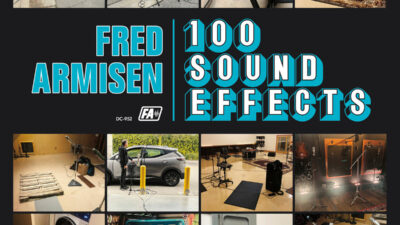Genre: Country, Folk
Favorite Tracks: “In the Heart of the Mountain,” “I’m in Over My Head,” “While the Stars Disappear”
There are few singers in country with better voices for the genre than Ben Nichols. I’m not saying he has the best voice in country (I’m sure he’d be the first to tell you he doesn’t) but rather the best voice for country. Every heartbreak, every cigarette, every existential spiral, every shot of whiskey, every night closing down the bar, good or bad—you can feel them in the songs. He’s lived the stories. And for over 25 years that voice has centrally defined his punk and country outfit Lucero more than any other musical element therein, a sometimes polarizing but driving force behind what has made the band successful.
IN THE HEART OF THE MOUNTAIN, Nichols’ second solo album under his own name and his first in 16 years, is an impressive feat of songwriting and production that has seemingly flown under the radar in music circles—even from those who would be generally excited about a new Lucero release. His output with Lucero, especially over the last 10 or so years (but really from ALL A MAN SHOULD DO onward), has hit a comfortable and natural sonic stagnation. But if his day job has evolved to be defined by a perfect clash of alt-country bar rock and punk spitfire, this new solo project is a mix of warm strings, cinematic quietness, and campfire simplicity, a more true-to-form singer-songwriter record that at times exists beyond Lucero entirely.
The album is a remarkably different series of ideas and atmospheres, both an obvious follow-up to the unplugged recordings the band released last year and a further-still exploration of grander, studio-focused sounds. This many projects and this many records into his career, to hear Nichols’ offer something so broadly accessible and fresh is at least a little bit shocking; his solo debut, 2009’s THE LAST PALE LIGHT IN THE WEST, was a very good record, but it was by and large a sonic extension of his band—even in conceit alone, a concept album spiritually built around Cormac McCarthy’s Blood Meridian and featuring Rick Steff was and is pretty on the nose. Here, the creativity and focus of that album remain, but the sound has evolved dramatically for the better.
Throughout the album I found myself frequently reminded of what “The War,” from 2005’s classic NOBODY’S DARLINGS, has come to represent to Nichols and Lucero. A longstanding staple of the band’s live sets, it’s a character study—the type of song Nichols has made a career recording—but even by the lofty lyrical standards by which Lucero are often held it still feels singular in their catalog. The lyrics across IN THE HEART OF THE MOUNTAIN are similarly raw and direct, bouncing between acoustic and stripped-back quietness and bold string or pedal steel production. But because the sound is itself unique from his previous work, like the live version of “The War,” with Nichols on guitar and the aforementioned Steff on keys or accordion, there is a paralleled stoicism and stillness worth living in.
But perhaps most impressive throughout IN THE HEART OF THE MOUNTAIN is just how good Nichols’ voice sounds. On 2021’s WHEN YOU FOUND ME, it felt like we had crossed a point of no return, with his husky vocal tracks sounding heavily altered by studio wizardry and ambitious production elements, trying to keep his gruff, weary vocal chords alive as though Lucero were some classic rock band 60 years into their careers. But 2023’s excellent SHOULD’VE LEARNED BY NOW, and especially this new solo outing, put that fear to rest. Be it on big rock songs like the slow, rollicking “Fading Back Into The Night” or stripped-back acoustic numbers like the come-to-Jesus murder ballad “The Prayer” (which feels far more devastating here than it did on LUCERO UNPLUGGED just a year ago), he sounds both full-throated and wise. “One day we all leave / we do we must / it all hurts so much” he concludes in his calming and straightforward Memphis drawl on closing ballad “The Devil Takes His Leave,” a final moment delivered as only he can with a mix of exhausted sadness and forthright understanding.
Like his past records, Nichols’ verbose storytelling remains on full display—visual song titles like “She’s Starlight in the River” and “From a Western or a War Movie” alone give you a good idea of the kind of lonely, existential canvas he’s exploring. His name has long deserved to be thrown in the mix with the Hoods and Cooleys and Tweedys and Isbells and Finns of the world. He’s a tremendous storyteller whose writing is intensely filmic—quiet and personal enough to be devastating but universal to the point of often being big and unfussy, with gripping choruses that can stand up with anyone in country or punk or rock. Hearing him stare into the void on “While the Stars Disappear,” his tired voice dueling this cosmic, Knopfler-esque guitar part while both ring quietly out into the great nothing? You’d be hard-pressed to find someone honing their strengths as both a vocalist and a writer better right now.
















Comments